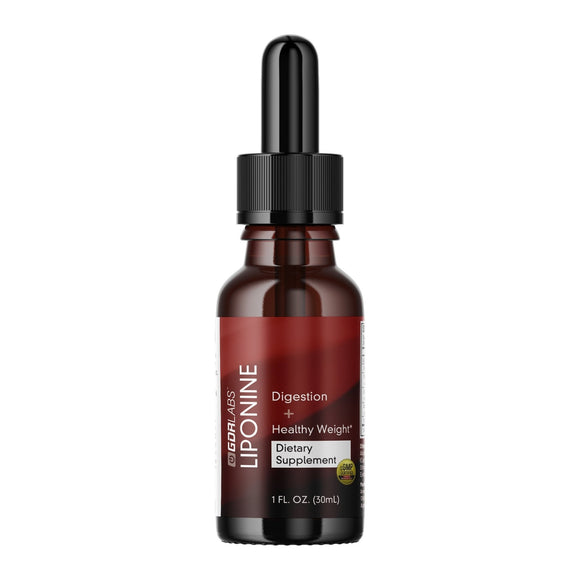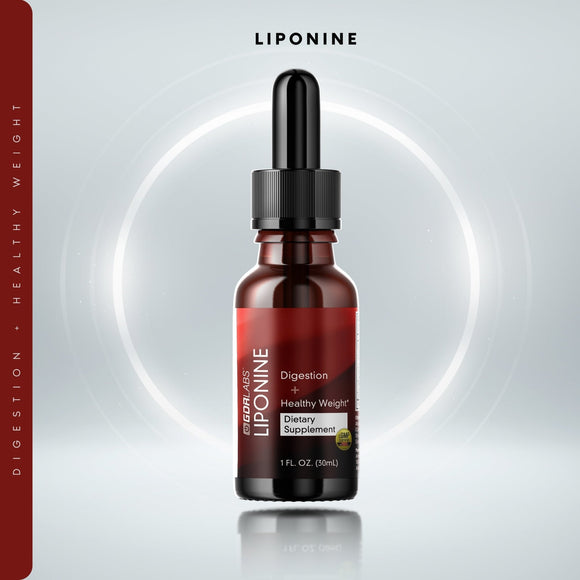The Ugly Truth About Counterfeit Supplements: A Deeper Look
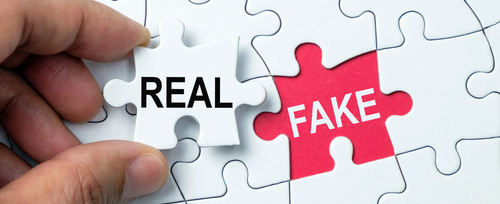
Inan era where the pursuit of health and wellness is more prominent than ever, the dietary supplement industry finds itself at a crossroads. On one side, companies like GDR Labs uphold the highest standards of safety and quality, adhering to Good Manufacturing Practices (GMP) as outlined by the U.S. Food and Drug Administration (FDA). On the other, a shadowy world of counterfeit products threatens to undermine these efforts, posing significant risks to consumers. The difference between the genuine pursuit of health and falling victim to these dangers often lies in consumers' choices. In this post, we delve into the perils of counterfeit supplements and why it's critical to stay informed.
The Scale of the Problem
The dietary supplement industry is booming, fueled by a growing awareness of health and wellness. However, this surge in demand has also attracted opportunistic entities that flood the market with fake, counterfeit products. These products are not just ineffective; they are dangerous, exploiting consumers' trust and desire for a healthier life. GDR Labs, operating strictly within the FDA's 21 CFR 111 regulations, has seen firsthand the devastation these counterfeit products can cause, not just to individual health but to the integrity of the industry as a whole.
Here are a few examples of counterfeit GDR Labs products we want to make sure that you avoid:
https://www.ebay.com/itm/166383275255
https://www.walmart.com/ip/3-Pack-Phyto-Test/5101637819?wmlspartner=wlpa&selectedSellerId=101182756
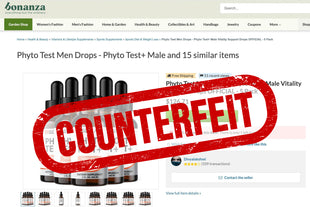
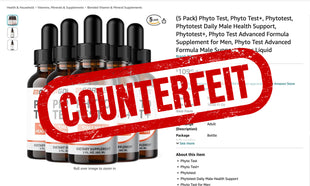
Please note: While these may appear to be offered by trusted vendors, these counterfeiters have perfected the product submission system for the larger companies!
The FDA's Challenge
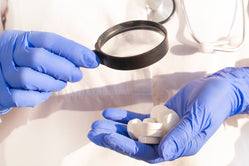
The FDA faces a Herculean task in policing the dietary supplement market. The sheer volume of products and the ease with which companies can spring up (and disappear) makes it nearly impossible for the agency to inspect every facility. This regulatory gap is a breeding ground for counterfeit operations that, without fear of immediate repercussion, continue to endanger public health.
Why Counterfeit Supplements Are Dangerous
The dangers posed by counterfeit supplements extend far beyond the surface-level risks many might expect. These illicit products, masquerading as shortcuts to health and vitality, often lead to severe and unforeseen consequences for consumers. Let's dive deeper into why counterfeit supplements are not just a bad investment but a grave threat to health and well-being.
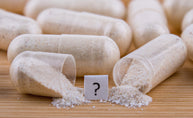
Unknown Ingredients and Their Dangers. Counterfeit supplements are notorious for containing ingredients that are not listed on their labels. This deceit poses several risks, from the consumption of inert substances that provide no benefit, to exposure to harmful chemicals and unapproved drugs.
The latter can lead to serious side effects, ranging from mild allergic reactions to severe, life-threatening conditions. For individuals on medication, the risk is compounded as these unknown ingredients can interact negatively with their prescriptions, potentially neutralizing the efficacy of vital drugs or inducing harmful side effects.
The presence of unapproved drugs in these supplements is particularly alarming. Health authorities may have rejected these drugs for safety reasons, yet they find their way into counterfeit products. Consumers, believing they're taking a simple vitamin or mineral supplement, may unknowingly ingest substances that could have devastating effects on their health.
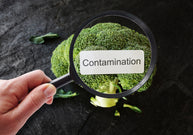
The Perils of Contamination. The manufacturing conditions of counterfeit supplements are a black box. Without adherence to any regulatory standards, these products may be produced in unsanitary environments, leading to contamination.
Bacteria, mold, toxins, and heavy metals like lead or mercury can contaminate these supplements, posing serious health risks to consumers. Ingesting contaminated supplements can lead to gastrointestinal issues, long-term organ damage, neurological problems, and other serious health conditions.
This contamination not only affects the individual consuming the supplement but can also pose a wider public health risk. For example, if a supplement is contaminated with bacteria that are resistant to antibiotics, it could contribute to the broader issue of antibiotic resistance.
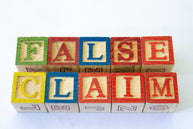
The Impact of False Claims. Counterfeiters often lure consumers with exaggerated or outright false claims about their products' effectiveness. These baseless promises not only mislead but also exploit the hopes and trust of individuals seeking genuine health improvements.
These bogus assurances can also lead consumers to rely on these supplements for serious health issues, leading to delayed treatment of manageable or curable conditions with proven medical interventions. The psychological impact of relying on ineffective treatments can exacerbate physical health issues, leading to a cycle of health deterioration and disappointment.
Furthermore, the use of counterfeit supplements based on false claims can lead to a distrust of legitimate dietary supplements and healthcare practices, skewing public perception and potentially deterring individuals from seeking appropriate medical advice and treatment.
The Role of Companies in Combating Counterfeits
The battle against counterfeit supplements requires a multifaceted approach, with companies at the forefront of innovation and safety playing a crucial role. It's not just about protecting the brand but ensuring that consumers are safe, informed, and receiving products that truly benefit their health. Let's delve into how companies, exemplified by GDR Labs, are taking proactive steps to secure their products and educate their customer base.
Implementing Rigorous Quality Control Measures. Quality control is the bedrock of any reputable supplement company's strategy against counterfeits. This encompasses everything from sourcing raw materials to the final product testing before products hit the market. For example, GDR Labs employs third-party contractors to rigorously review their laboratory processes, procedures, labels, and formulations. Such measures ensure that every product meets the highest standards of safety and efficacy. By setting a high benchmark for quality, reputable companies make it harder for counterfeiters to mimic their products convincingly.
Engaging in Consumer Education. An informed consumer is a company's best ally in the fight against counterfeits. Through various platforms, including social media, newsletters, and their websites, companies can educate consumers about the risks of counterfeit products and how to avoid them. This includes sharing information on how to identify authentic products, understanding the importance of buying directly from the company or authorized retailers, and recognizing red flags indicating a product might be counterfeit.
Collaborating with Regulatory Bodies. Partnerships between supplement companies and regulatory bodies like the FDA are crucial in the fight against counterfeits. Companies can share intelligence about counterfeit operations and collaborate on public awareness campaigns. Furthermore, by advocating for stricter regulations and enforcement, companies can help raise the industry's standard, making it more difficult for counterfeiters to operate.
Fostering Transparency and Trust. Transparency about the sourcing of ingredients, manufacturing processes, and lab testing results builds consumer trust. Companies like GDR Labs that are open about their operations and committed to quality reassure customers about the safety and efficacy of their products. This trust not only discourages consumers from turning to potentially counterfeit products but also encourages them to report suspicious products.
Offering Exceptional Customer Service. Providing robust customer service, including easy access to information and support, further safeguards consumers. When customers can easily reach out with questions about product authenticity or report concerns, companies can quickly address these issues, mitigating the risks associated with counterfeit products.
How to Protect Yourself
In navigating the vast and often murky waters of the dietary supplement market, arming yourself with knowledge and vigilance is paramount to ensure that you are not only protecting your investment but, more importantly, your health. Below are a few strategies to safeguard against the risks of counterfeit supplements.
1. Purchase Directly from Trusted Sources
The foundation of consumer safety in the supplement market lies in sourcing products from reputable and trusted sources. Companies like GDR Labs prioritize consumer safety by selling their products exclusively through verified channels. This direct approach not only ensures the authenticity of the product but also provides a clear traceability path should any issues arise. When purchasing supplements, make sure to:
- Verify official sellers: Look for the list of authorized retailers on the manufacturer's website.
- Avoid third-party resellers: Especially those on platforms known for hosting independent sellers where the authenticity of products can be harder to guarantee.
- Seek transparency: Reputable companies will be transparent about their manufacturing processes, ingredient sourcing, and quality control measures.
2. Be Skeptical of Outrageous Claims
The old adage "if it sounds too good to be true, it probably is" holds especially true in the world of dietary supplements. Outrageous and unfounded claims are a red flag indicating that a product may not be what it purports to be. Genuine supplements are designed to support or supplement health, not provide instant cures or miraculous results. To protect yourself:
- Question the science: Legitimate products will have research or scientific evidence supporting their claims. Look for references to studies or clinical trials.
- Understand that supplements are supports: They are meant to complement your diet and lifestyle, not replace balanced meals or medical treatments.
3. Check for Quality Certifications
Quality certifications from reputable third-party organizations serve as a beacon of trust and assurance in the supplement market. These certifications indicate that a product has undergone and passed rigorous testing and adheres to specific quality and safety standards, such as Good Manufacturing Practices (GMP). When evaluating supplements:
- Look for the seals: Certifications from organizations like the US Pharmacopeia (USP), NSF International, GMP, or FDA are prominent quality indicators.
- Understand what certifications mean: Take the time to learn what each certification entails and why it's important for the safety and efficacy of supplements.
4. Educate Yourself
An informed consumer is a protected consumer. Understanding what you are consuming, the benefits of different ingredients, and the realistic outcomes of dietary supplements empowers you to make informed decisions. To educate yourself:
- Research ingredients: Utilize reputable sources to understand the benefits and potential side effects of supplement ingredients.
- Stay updated: Health and nutrition science evolves rapidly. Keeping abreast of the latest research can help you make informed choices about your supplement needs.
5. Report Suspicions
If you suspect that a product is counterfeit, reporting it is not only in your best interest but also helps protect others. Regulatory bodies like the FDA rely on consumer reports to track and act against fraudulent products. When reporting:
- Provide detailed information: Include the product name, where you purchased it, and why you believe it to be counterfeit.
- Contact the manufacturer: Notifying the original manufacturer can prompt them to take legal action against counterfeiters and inform other consumers of the potential risk.
By taking these steps to protect yourself, you contribute to a safer, more transparent dietary supplement market. Consumer vigilance, coupled with industry and regulatory efforts, forms a powerful defense against the threats posed by counterfeit supplements. Remember, your health is invaluable; investing time and effort into safeguarding it is always worthwhile.
In Conclusion
The danger of counterfeit dietary supplements cannot be overstated. These products jeopardize not just the health and safety of individuals but the credibility of an entire industry. By choosing to purchase supplements from reputable sources, educating ourselves about the products we use, and remaining vigilant against too-good-to-be-true claims, we can protect our health and support the integrity of the dietary supplement market. Companies like GDR Labs lead by example, but the fight against counterfeit products requires the collective effort of consumers, businesses, and regulatory bodies alike. Stay informed, stay safe, and let's work together to ensure that our journey towards health and wellness is secure and genuine.








